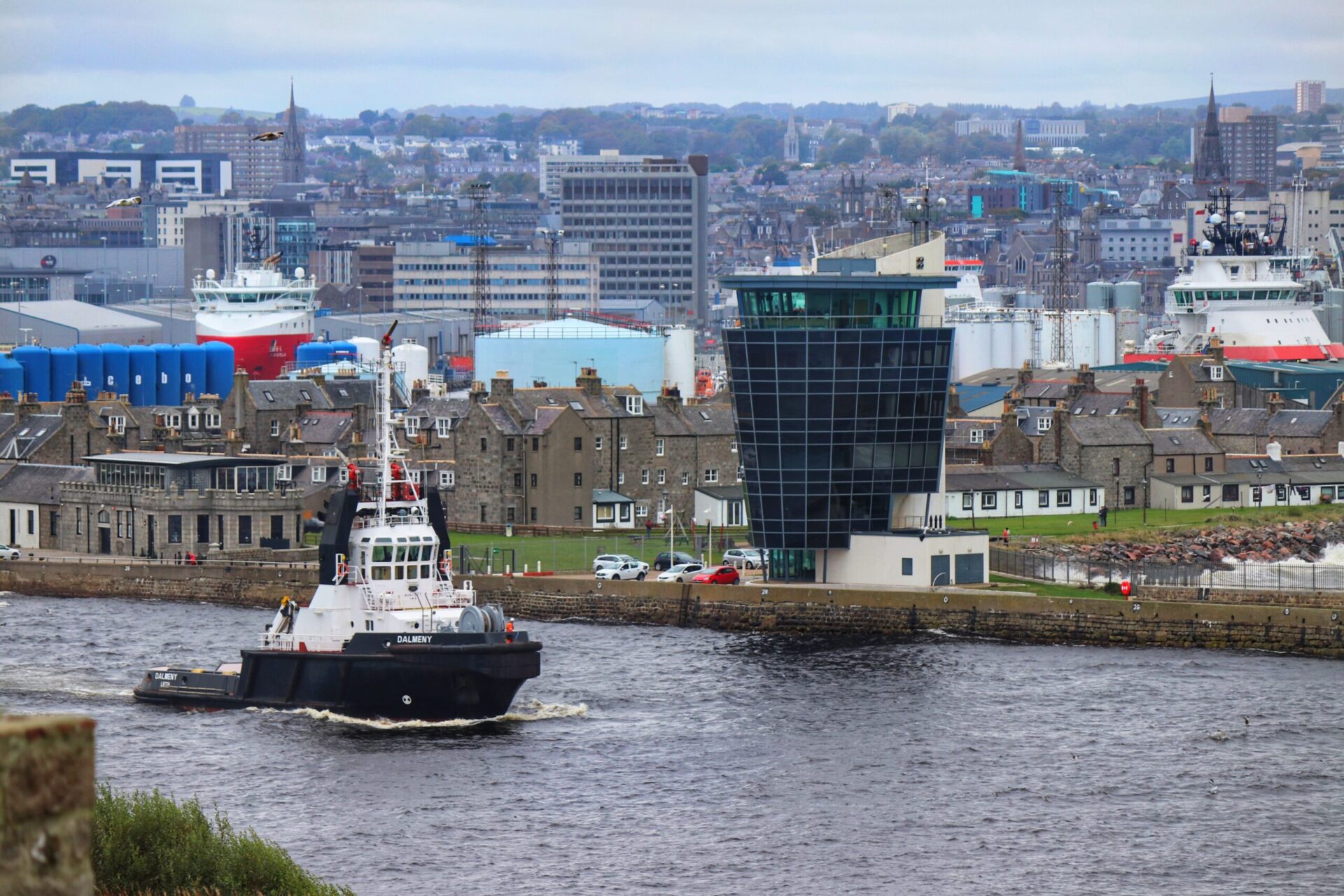Can Aberdeen become the Net Zero Capital of Europe?

Jamee Kirkpatrick, Account Director in our energy team
Aberdeen has been hailed as the ‘Oil and Gas Capital of Europe’ for decades and latterly the ‘Energy Capital of Europe’, but that could all be set to change.
Recently, in a bid to gain Green Freeport status of its regional port alliance including Peterhead Port Authority, Port of Aberdeen, Aberdeen International Airport and both Aberdeen City and Aberdeenshire councils, the city is eying up a new title – the ‘Net Zero Capital of Europe’.
For many, the goal of achieving net zero by 2050 has been misunderstood by the general public. While it does mean increased urgency to phase out fossil fuels, it is very unlikely that they’ll be completely eliminated in the near future, particularly when you consider how many byproducts of oil there are.
There is light at the end of the tunnel though, with high levels of investment, research and development (R&D), and testing in place to ramp up scalable green alternatives for hard to abate sectors. One only needs to look at the increase in electric car sales, production and supporting infrastructure in recent years as evidence.
So, what does Net Zero mean?
The key to understanding net zero is to focus on the ‘net’ part. We’re not talking about absolute zero here – a world where there are literally no emissions – but rather one where emissions are reduced as close to zero as possible, and the remainder are re-absorbed from the atmosphere or offset by carbon negative activities such as carbon removal.
The heightened imperative of reaching net zero has required supermajors to assess their energy mix and, in particular, their green energy portfolios such as wind, solar, carbon capture and hydrogen. Several oil majors have announced that they will stop exploration, but they have not committed to stopping production due to demand, particularly in view of energy security pressures. Instead, they are looking at:
- how they can reduce emissions of their existing assets, such as electrifying assets or eliminating fugitive emissions and;
- how they can offset the impact of their current ‘dirty’ operations, with green projects, such as offshore wind.
Where does this leave Aberdeen?
Transition isn’t a new concept for the city. In 2015, the UK’s first hydrogen production and bus refuelling station opened in Aberdeen, and now you can barely see a bus pass by that isn’t hybrid. Even before that, in 2012, bus fleets went hybrid with the introduction of electric buses on all major city and shire routes. Aside from transportation infrastructure, the Scottish Government recently launched a £10m hydrogen initiative which will see investment in hydrogen technology development and exports from the region for which Aberdeen is primed to support.
Aberdeen is also home to the European Offshore Wind Deployment Centre (better known locally as Aberdeen Bay Wind Farm) which is an offshore wind test and demonstration facility. The local Acorn Project, which will utilise existing oil and gas infrastructure such as pipelines, is on track to become Scotland’s first operational carbon capture and storage (CCS) facility, despite recently losing out on government funding back in 2021.
These are just a few examples of transition in the city. On top of CCS and renewable energy, there’s also traditional oil and gas transition, such as well abandonment and decommissioning to consider, which will take decades to complete.
Aberdeen’s legacy in oil and gas, married with its commitment to a net zero future, makes it really quite unique as an energy hub. A wealth of knowledge, expertise and experience is met with technology, innovation and a willingness to not only embrace change – but thrive in it. In fact, trade bodies such as Oil and Gas UK and The Oil and Gas Technology Centre have rebranded to Offshore Energies UK and Net Zero Technology Centre respectively to support the city’s growing diversity in the wider energy mix.
So, is Aberdeen primed to be the Net Zero Capital of Europe?
There’s no reason why not – Aberdeen, as noted above, has a remarkable ability to adapt and excel. But as a city that has been left to its own devices for far too long, it will require help. National and local government support to transition traditional oil and gas workforces is needed, as well as funding and investment to aid infrastructure and technology development to allow SMEs in the traditional supply chain to adapt.
Real investment and time will be required to ensure that the city isn’t left behind or forgotten. Given the opportunity, Aberdeen can cement its place in the net zero journey and even offer further stability for the city than it did in the ‘boom’ days of oil and gas. The wider energy industry, globally, can also learn from the knowledge held within the Granite City.
Transition isn’t a buzzword, it’s something that Aberdeen is actively pursuing and doing, so the goal of becoming the Net Zero Capital of Europe is in reach – but to cross the finish line, collaboration, investment and innovation are required.

